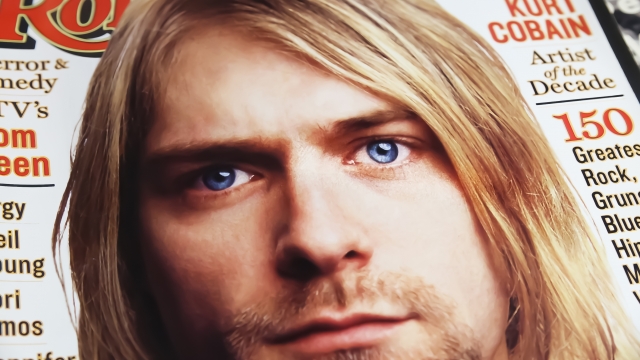In the shadow of Kurt Cobain's Seattle home, an unofficial memorial draws fans to pay their respects to the Washington-born Nirvana frontman. Two benches in the park have been adorned with letters, trinkets and graffiti, all in honor of Cobain.
"When you listened to Kurt, you never were expecting the next lyric to be, and you were never expecting these chord progressions that don't exactly go together," said fan Erin Bucher, who drove to Seattle from Arizona to pay tribute to Cobain and mark the 30th anniversary of the singer's death. Bucher said he turned 13 the day Cobain died by suicide in 1994.
"It's amazing that something he never expected to grow into what it did, you know, and something he was always against the fame and the popularity," Bucher said.
Across town under the Space Needle, Seattle's Museum of Pop Culture, or MoPOP, is home to the largest collection of Nirvana memorabilia in the world, covering Cobain's journey from a small logging town to immense fame in the band's seven-year history.
"He's an incredible songwriter writing these catchy songs. He has an amazing voice. His lyrics are nebulous enough that you can make up whatever narrative you want for them — and he's beautiful. There's a sort of tragic aspect to him that somehow draws people," said Jacob McMurray, the chief collections and exhibitions officer at MoPOP.
McMurray curated the exhibit, which has been open since 2011. He says Cobain's appeal is multifaceted: While the mainstream music industry had never seen a rock star wearing thrifted flannels, the fans of the '90s were ready for it. Nirvana rose to meteoritic fame nearly instantaneously, thanks to the age of MTV, and Cobain's short career ended at its height, without the band ever having time to put out a bad album — freezing his success in time.
"That kind of mysteriousness, that disaffectedness, that idea that this is somebody that didn't come from a lot of opportunity, but with a lot of talent and ambition and luck became the biggest rock star in the world," McMurray said.
The legacy of Cobain however, is a complicated one, mired in drugs and tragedy that followed him throughout his career. The day he died, memorials broke out as fans wrapped their heads around how so much young talent was ended abruptly.
"The end of Kurt Cobain doesn't diminish the path that he went through and the fact that he was a supremely talented musician that really changed the face of music," said McMurray.
Back outside Cobain's home, Scott Feldman brought his son Josh, a high school senior, across the country to the memorial.
"We just came here pretty much to pay our respects today, and we're heading back to New Jersey tonight," said Scott.
While new generations discover Kurt Cobain and Nirvana, McMurray says, despite his imperfections, Cobain's legacy lives on in everyone who finds inspiration in his talent.
"This has become a cultural thing, this is more than just a tiny story that we're telling and encapsulating. It is something that is continuing to grow and evolve and is a living structure at this point," said McMurray.
McMurray hopes that the exhibit shows what a group of 20-somethings from a small town were able to accomplish, and it is that aspect of Nirvana and Cobain's story that continues to inspire.
If you are struggling with mental health and need someone to talk to today or any day, dial 988 for the National Suicide Prevention and Crisis Lifeline.
SEE MORE: Kurt Cobain's smashed Fender guitar sells for nearly $600K
Trending stories at Scrippsnews.com




